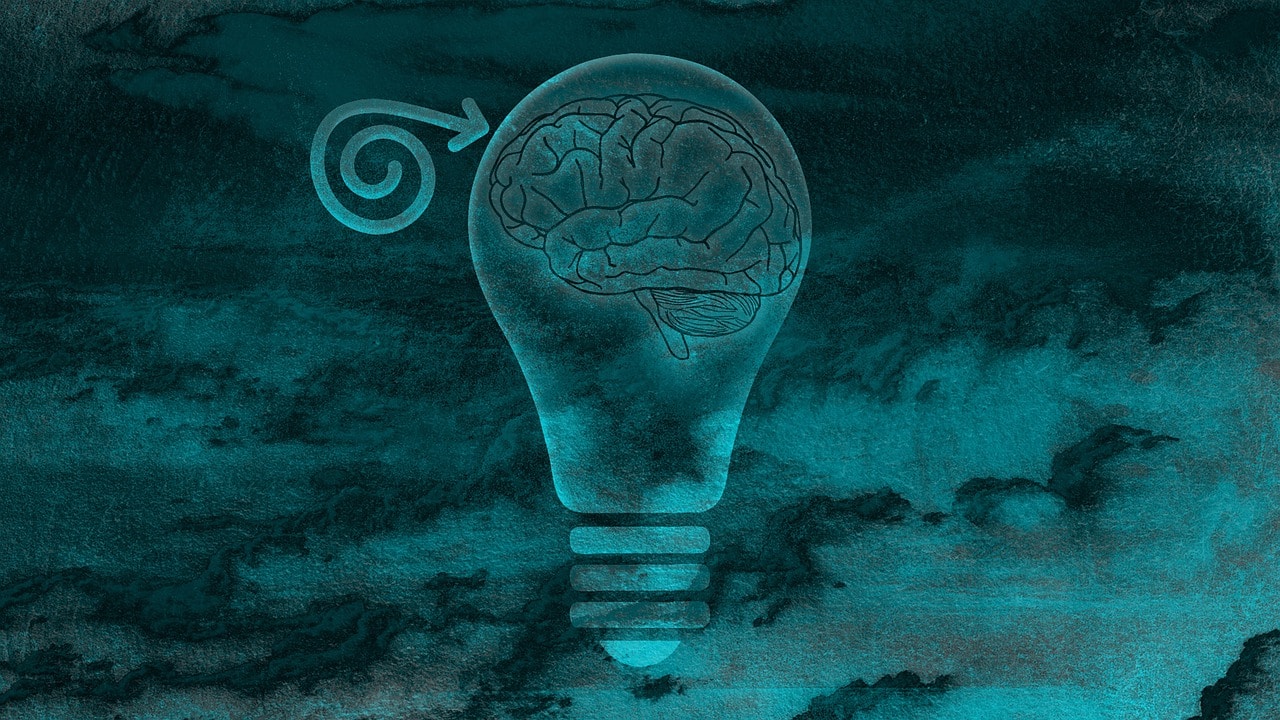The thought of tribulations endured as the world celebrates this year end are uncanny, with unanimous hope that the future conveys closure to the constant struggle that life has become. The focus of many remains drawn to the status and resolution of the COVID-19 pandemic, but what is to be done about the silent enemy threatening the well-being of an already unstable society of mentally ill individuals, forced to keep away from the support systems they so desperately need? The world has seemingly forgotten that balance is essential to appease to all, and rightfully so by attempting to save an abundance of lives on one side of the spectrum, we begin to lose on the other. Although statistics are not readily available when compared to COVID-19, the sheer number of lives lost to addiction, chronic pain, depression related suicide and overdose continue to grow and can no longer be overlooked. With an underwhelming availability of effective treatments available to patients with severe forms of various mental health illnesses, researchers have begun looking to the past, specifically within the historical benefits of psychedelic drugs, to find solutions for the future.
The potential benefits of using psychedelic substances to treat mental health has become increasingly apparent over the course of the past year, with the sector receiving an abundance of new companies dedicating their efforts to the creation of innovative psychedelic medicines, hopeful to assist with the current mental health landscape. Combined with the surge of capital flooding the psychedelic markets, investors are beginning to understand the exponential value that the sector offers on a long term global scale, leaving speculations that the year to come once again offers multitudinous opportunities. Companies such as Compass Pathways (CMPS.NASDAQ) and MindMed (MMED.NEO) were fortunate enough to foresee the need for innovative advancement to current mental health treatments and are well on their way to creating useable medications and therapies that offer extreme potential towards the benefit of mental health patients. Flash forward to current events and both companies have enjoyed stellar years translating into market cap valuations in excess of billions of dollars.
Compass Pathways (CMPS.NASDAQ) | USD $47.64 | $1.71 B | is a mental health care company dedicated to accelerating patient access to evidence-based innovation in mental health. The focus of the company is to improve the lives of those who are suffering with mental health challenges and who are not helped by current treatments. Often labelled as the pioneer of psychedelic biomed, the company recently went public and raised an astounding $146.6 million to be used for clinical development, R&D programs, and to continue work on digital technologies Turning a great deal of attention to the sector with its ability to raise funds seamlessly and produce an impressive overall market cap, Compass Pathways has most certainly set the standard for future psychedelic biomedical companies. Focused on TRD and Headquartered in London, UK, with offices in New York, USA, the vision of the company is a world of mental wellbeing.
Treatment-resistant-depression is a term used for patients challenged with depression who do not respond to at least two different antidepressant medications. Understanding that depression is the global leader of disability and ill health, with two thirds of patients not assisted by the first trial of antidepressant medications and one third of patients failed by multiple attempts at treatment, Compass has targeted the development of a new model of psilocybin therapy in which their proprietary formulation of synthetic psilocybin, COMP360, is administered in conjunction with psychological support. Compass Pathways COMP360 has been awarded Breakthrough Therapy status by the US Food and Drug Administration (FDA), for treatment-resistant depression (TRD), and are currently conducting a phase IIb clinical trial of psilocybin therapy in 216 patients with TRD in 21 sites across Europe and North America. The purpose of the study analyzes the safety and efficacy of psilocybin therapy in TRD and remains determined to identify optimal doses of psilocybin with three doses investigated. Psilocybin is the active ingredient in “magic mushrooms”, and early studies conducted have revealed that psilocybin treatments could be a safe and effective medicine for patients with depression, anxiety, addiction, and other mental health illnesses, according to Ross et al, 2016; Griffiths et al, 2016; Carhart-Harris et al, 2016 studies.
To further the development of its COMP360 psilocybin therapy program, Compass Pathways has partnered with the Institute of Psychiatry, Psychology and Neuroscience (loPPN) at King’s College London to perform studies surrounding healthy volunteers. The study was a phase I, double-blind placebo-controlled study using 89 healthy volunteers aged between 18 and 65 years of age were randomized in a 1:1:1 ratio to receive 10mg of COMP360 (n=30), 25mg COMP360 (n=30), or placebo (n=29), with a 1:1 support from a trained assisting therapist during a session lasting roughly six hours. In total, 25 dosing sessions were completed, with up to six participants per session. The study involved a 12 week follow-up period. The results were presented at the ACNP 2019 annual meeting and revealed that psilocybin was well-tolerated when administered to healthy adult volunteers with support from specially trained therapists.
The process of psilocybin therapy at Compass is quite simple. During the initial round of preparations, the therapist and patient are familiarized and create a trusting bond, relaxing the patient and allowing for a supported psilocybin session. The patient then lies down in a comfortable setting designed specifically to produce a calming atmosphere. Psilocybin is then administered by capsule, a playlist of specifically designed music is played, and the patient positions a covering over the eyes to allow for deep internal focus. The experience typically lasts for 6-8 hours, during which a therapist and an assisting therapist are present. Once the experience is completed, the patients are encouraged to share, with guidance from their therapist, their encounters during the session with the goal of generating insights and ideas to change unhelpful emotional and behavioral patterns. Patients often feel a sense of agency, a separation from their symptoms, and are empowered to make changes in their lives.
With the number of people affected by treatment resistant depression in the US alone estimated to be at least 3 million patients, the potential for COMP360 to become a popular treatment for TRD remains evident, and with continued studies combined with global acceptance of utilizing psychedelics for mental health treatment, COMP360 is projected to perform sales upwards of $1 billion USD as soon as 2030. Many challenges remain before the company achieves this milestone but having already receiving breakthrough therapy designation from the FDA, the path towards licensure and distribution remains a matter of when, not if.
For more information regarding Compass Pathways, visit https://compasspathways.com/
MindMed (MMED.NEO) | CAD $3.88 | $1.52 B | is a biotechnology company focusing on helping patients overcome rather than survive, helping breakthrough symptom management that has become a common cycle for mental healthcare. MindMed offers a complete toolset, from breakthrough medicines and technology to compassionate therapy, while continuing to develop best-in-class mental health cares through elevated clinical testing, focusing heavily on next-gen research and development combined with comprehensive treatment programs. The team of veteran drug developers and mental health experts behind MindMed boast centuries of combined experience in production development and commercialization and have been pegged as one of several startups with the potential to reinvent the mental health landscape.
Focused on the treatment of anxiety, MindMed has identified the failure of meaningful progression over the past 30 years as an opportunity to offer multidimensional solutions to the long outstanding issue. On the basis that anxiety will not be solved with just a pill a day, MindMed seems determined to produce a viable solution for the estimated 284 million patients suffering from anxiety globally, hopeful to contribute to the $4.5 billion annual sales of anxiety medication. Project Lucy, which involves administering a hallucinogenic dose of LSD through a registered therapist, is a commercial drug development program designed to treat patients with anxiety disorders. MindMed recently announced the successful completion of a pre investigational new drug (IND) meeting with the U.S. Food and Drug Administration (FDA) regarding the development of Project Lucy. The success of this engagement is a remarkable advancement for the future of psychedelic assisted therapies, and MindMed intends to open the IND with the FDA in August 2021 through a Phase 2b clinical trial that will evaluate experiential doses of LSD in anxiety disorders. LSD has been shown to increase the neurotransmission activity far beyond standard levels, allowing patients to expand the mind and minimize inhibitions, supporting the use of talk therapy to identify core concerns, very similar to the process administered by Compass Pathways.
In addition to Project Lucy, MindMed is currently assessing the ibogaine derivative 18-MC for the development of an addiction treatment program. Project Layla is using preliminary data from the Phase 1 Multiple Ascending Dose (MAD) and Single Ascending Dose (SAD) study, revealing that the drug is safe and well tolerated within the doses tested to date, and beneficially no Serious Adverse Events (SAEs) have been reported. Given the excellent safety profile, the leader of MindMed clinical team and 18-MC Medical Director, Dr. Judy Ashworth, has made the decision to carry forward a series of elevated dose studies to gather the required data necessary to carry the company towards the initiation of its Phase 2a proof of concept study. A meeting with the FDA has already been confirmed to support Project Layla and its development Plan.
Rounding out its trio of psychedelic studies, MindMed recently announced positive feedback in regards to its protocol design for a Phase 2a clinical trial evaluating microdoses of LSD in the treatment of adult ADHD from the Swiss and Dutch health authorities. MindMed is currently working with site coordinators in Switzerland and the Netherlands in regard to patient recruitment strategy and anticipates the commencement of patient dosing in the second half of this year at both sites. The company is evidently euphoric to have received such feedback and is eager to begin recruitment and commence dosing ADHD patients as part of its Phase 2a trial. Furthermore, the microdosing division at MindMed is now evaluating the potential for additional technologies as part of a sequence of R&D efforts and looks to grow its portfolio of microdose-related clinical trials.
Dr. Miri Halperin Wernli, President and director of MindMed Discover explains “In the psychedelics-assisted therapy paradigms, the psychedelic molecules don’t by themselves address the underlying biological, psychological or social causes of the mental illness. What psychedelic medicine allows us to do is help patients open their eyes, in a safe and professional environment, on their wounds and deep conflicts, process them, and create new meanings-between them and their wounds, between them and the world, between their ego and their soul-which in turn helps alleviate the pain and suffering, and with a subsequent revision of health”. This statement alone should help the general public to understand that the use of psychedelics for the treatment of mental health is powerful, impacting a patient’s life in a way that differs form the recreational use of psychedelics. Having the potential to induce profound lasting impacts on an illness desperate for an upgrade is both virtuous and astute and will certainly continue to command adoration from both hopeful patients and investors alike.
For more information regarding MindMed, visit https://mindmed.co/
Bearing in mind the previous year has seen the emergence of two billion dollar clinical trial psychedelic companies, the flock of investors rushing the market in search of the next main attraction have plenty to choose from, but one private company gone public looks to command the attention and investments of all who show the potential to realize what is advancing in its pipeline. When considering the success of Compass Pathways and MindMed based on a few select clinical trials, Bright Minds boasts an impressive array of several early and late pre-clinical trial studies already underway, offering tremendous value to early shareholders as its story unfolds.
Bright Minds (XXXX.CN) is a biotechnology company focused on developing the next generation of psychedelic pharmaceuticals to treat a range of disorders categorized into three main areas, Neuropsychiatry, Epilepsy and Chronic Pain. Bright Minds experience in the biology of the serotonergic system is second to none, demonstrating a thorough understanding of the effects that specific receptors have on the body. By using this knowledge to both create new and modify existing molecules that will precisely target specific conditions, patient lives are being transformed through dramatic reduction in side effects and improved therapeutic action. Serotonin receptors play a large role in regulation of cognitive function, emotions, memory, and the sleep-wake cycle. Disfunction in the serotonin system is associated with several disease states including neuropsychiatric, seizure, and pain disorders. Bright Minds compounds are designed to bring specific serotonin activity back in line with normal levels. The company believes that by doing so, treatment will be available for a wide array of disorders, aiding in the return to a healthy life. Bright Mind’s novel chemical entities are specific serotonin agonists, improving on first generation psychedelic compounds like psilocybin to provide personalized specific drugs, targeting specific serotonin receptors in the brain. Bright Minds have engineered superior molecules with improvements to the current state of the art including the target of specific serotonin receptors (5-HT2c, 5-HT2A/C, and 5-HT2A) in the brain improving safety and efficacy.
The company has assembled an impressive team of industry expert with more than 25 years of neuroscience experience, all of whom are dedicated to creating the next generation of serotonin drugs. The combined experience, which focuses on psychedelic compounds, their corresponding receptor sites, and integration within the brain, is directly applicable to the objective of the company, which is to create a new generation of highly targeted serotonergic drugs that will be able to reach and assist specific patient populations that the compounds of today cannot.
Dr. Alan Kozikowski Ph.D is the Chief Scientific Officer and Director of Bright Minds and is world renowned for his work on psychoactive substances including novel analogs of PCP and cocaine which showed potential to decrease harm to users. Having studied at Michigan, Berkeley, and Harvard, he began his career working as an organist chemist at the University of Pittsburgh, developing a curiosity towards the applications of chemistry to biological problems. This led to his eventual position as the Director of the Drug Discovery Program at the Georgetown University Medical Center, where he would spend the next decade. To further refine his achievements, Dr Kozikowski has experience operating biotechnology companies, and as the CEO of Starwise Therapeutics, he assisted in developing novel HDAC6 inhibitors for use in Fragile X syndrome, Charcot Marie Tooth disease and Rhett Therapy.
Dr. Revati Shreeniwas MD is the Chief Medical Officer of Bright Minds has spent the last two decades as a physician researcher in the pharmaceutical industry and is passionate about bringing novel therapeutics to patients with an unmet clinical need. Prior to dedicating her studies to the psychedelic industry, she demonstrated her knowledge as a practicing physician and served as a faculty at Stanford and Columbia University. Dr. Shreeniwas has astute operational knowledge in leading complex programs for a range of therapeutics, ranging from Phase I to IV by serving as an executive level clinical expert. She has worked on several drugs that have gone on the be approved and are commercially successful.
Dr. Gideon Shapiro Ph.D is the Vice President of Discovery at Bright Minds and is undoubtedly one of the leading commercial scientists creating novel psychedelics for the treatment of mental health disorders. He trained as an organic chemist at University of North Carolina, University of California Berkeley, and the Federal Institute of Technology. His 30+ years spent professionally in the industry is decorated with achievements in drug discovery, development, and drug program management. Dr. Shapiro spent the last several years as the Chief Science Officer at Rugen Therapeutics, a leading drug discovery company focused on the use of ketamine to correct synaptic dysfunction, and his deep expertise in neuropharmacology, research and development collaborations and FDA regulatory process are irreplaceable.
With such a diverse field of professionals contributing their expertise towards the advancement of effective psychedelic medicines, the path towards commercial availability and distribution of the company’s superior compounds seem imminent. Unlike many of its competitors, Bright Minds pipeline reveals the advancement of several early and late pre-clinical studies, all of which hold commercial rights:
5-HT2C:
- Undisclosed seizure disorder Late Pre-Clinical
- Opioid Withdrawal Late Pre-Clinical
- Binge Eating Disorder Late Pre-Clinical
- Alzheimer’s Late Pre-Clinical
5-HT2A:
- Depression Early Pre-Clinical
- PTSD Early Pre-Clinical
5-HT2A + 5-HT2C:
- Undisclosed Chronic Pain Disorder Early Pre-Clinical
The foundation of the pipeline intends to provide revolutionary treatment for three main categories of disorders, Neuropsychiatry, Epilepsy and Pain. By combining its intelligent drug design, advanced molecular modeling, and scientifically rigorous pre-clinical evaluation of brain function models, the select compounds are of the best activity profile for advancing into patient clinical trials. The decisions made are driven by data and allows Bright Minds to de-risk their compounds to optimize success rates during trials. The following information can be found on Bright Minds website and has been included based on the intent to provide detailed understanding of the adverse impact of noted illnesses on society, as well as the effectiveness of Bright Minds superior compounds in treating the ailments:
Neuropsychiatry: Psilocybin, which is the psychoactive and psychedelic compound found in magic mushrooms, may have the ability to reset the functional connectivity of brain circuits known to play a key role in major depressive disorder (MDD) by its action on the 5-HT2A receptors. Unfortunately, because it is equally potent at the 5-HT2A and 5-HT2B receptors, the full potential of this compound cannot be achieved in MDD patients because of side effects. These can be ameliorated by the Bright Minds Biosciences targeted 5-HT2A and 5-HT2A/C agonists. MDD is a common (7.1% of all US adults; globally 264 million patients per WHO) highly disabling and stigmatized condition. It is often kept secret by patients. When disabled by MDD patients may have difficulty in the workplace and in maintaining personal relationships. Some patients may lose hope of recovery and attempt suicide, particularly if treatments have been ineffective in producing remission or preventing relapse. MDD is a recurrent disorder, as 50–80% of patients who have received psychiatric care for an episode of major depression have at least one further episode and a median of four episodes in a lifetime. Moreover, a host of other behavioral and psychological symptoms of dementia (BPSD) are exhibited by patients suffering from various forms of dementia. In particular, one domain of BPSD that has been routinely identified across patients with Alzheimer’s Disease is the hyperactivity–impulsivity–irritability–disinhibition–aggression–agitation (HIDA) domain. As the cognitive decline becomes more severe, there is an intensification of impulsivity. Because of the prominent role played by 5-HT2C in impulse control, Bright Minds has compounds in development for the treatment of binge eating disorders, and substance abuse disorders like opiate abuse cocaine abuse and smoking. Bright Minds Biosciences compounds have a unique advantage in the treatment of these disorders as by targeting the 5-HT2C receptors. Our drugs have the potential to treat these disorders without increase in addiction or weight gain. We are targeting patients with major depressive disorder (MDD) resistant to SSRIs, who are currently managed with a combination of drugs or with nasal ketamine treatment or electroshock therapy. Bright Minds Biosciences drugs have the potential to treat patients with resistant MDD without the side effects of SSRIs like weight gain, worsening sleep, worsening impulsivity. Atypical antipsychotics the most used drugs to treat HIDA domain symptoms but have modest benefit, and in most cases the adverse effects of these medications represent serious risks. Parkinson’s Disease is another condition where treatment of impulsivity is a therapeutic challenge, as impulsivity worsens when patients are treated with dopaminergic drugs, the mainstay of treatment in this disease. Bright Minds Biosciences portfolio of 5-HT2C agonists have the potential to treat these disorders in dementia and Parkinson’s Disease patients without the accompanying side effects on blood pressure and sleep.
Epilepsy: affects about more than 60 million people worldwide. More than 40% patients become resistant to treatments during their disease course, leading to distressing increase in seizures despite receiving two or more approved drug treatments. This is called pharmacoresistance. Approximately 20% of patients with primary generalized epilepsy and up to 60% of patients with focal epilepsy develop pharmacoresistance. Rare genetic diseases with pharmacoresistant epilepsy such as Dravet Syndrome, Lennox-Gastaut Syndrome and can be treated with serotoninergic drugs, but often these drugs have serious side effects related to non-specific action the 5-HT2B receptor requiring close monitoring and limitations on dosing. Several approved drugs like carbamazepine and valproate increase local concentrations of serotonin in the brain and may control seizures in part by this mechanism. Serotonin agonists have the potential to control seizures in neurons and also promote neuronal survival by accelerating the recovery of mitochondrial function after seizures and protect the brain. Bright Minds Biosciences, has a unique pipeline of 5-HT2C agonists being evaluated for the treatment of epilepsy, and testing is underway in collaboration with the National Institutes of Health to determine the best compound for treatment of epilepsy
Pain: Patients with chronic pain have symptoms of increased anxiety, depression, and cognitive impairment. Patients with these chronic pain syndromes are underserved by existing approved medications and are often users of unapproved psychedelic drugs and opiates for improving pain control. Today, chronic pain sufferers are faced with a lack of options that often lead to a choice between highly addictive opioids or continued pain. Serotonin agonists have been shown to have potent effects in blocking painful sensations in animal models of several hard to treat painful syndromes like cluster headache, fibromyalgia, chemotherapy induced peripheral neuropathy. These patients need better and safer treatments that can control pain and improve their quality of life. The neuropsychiatric and analgesic effects of 5-HT2C/A agonists are expected to contribute to better management of pain without the side effects of addiction, drowsiness, worsened cognition observed with current pain medications. Bright Minds Biosciences is working with the National Institutes of Health to develop new non-opioid pain control medications.
When calculating the rising number of people struggling to cope on a daily basis with said conditions, any amount of success towards the commercialization of its compounds will not only have an immediate impact on countless lives desperate for effective treatment, but also on the continued emergence of necessary psychedelic medicines. With its market cap currently sitting at a fractional level ranging from 1/10th to 1/20th in comparison to the billion dollar valuations of Compass Pathways and MindMed, Bright Minds and its elevated selection of superior serotonin compounds appear to hold the advantage over its competitors, enabling advanced treatments for a variety of ailments, which in turn will certainly allow for aggressive growth and re-valuation. Speculation can be made that as the company progresses towards the completion of its phased clinical trial studies and commercialization for its selection of superior compounds, Bright Minds is well on its way to dominating the future of psychedelic pharmaceuticals and providing stockholders the opportunity to experience what may be the next multi-billion dollar company.
For more information regarding MindMed, visit https://brightmindsbio.com/








